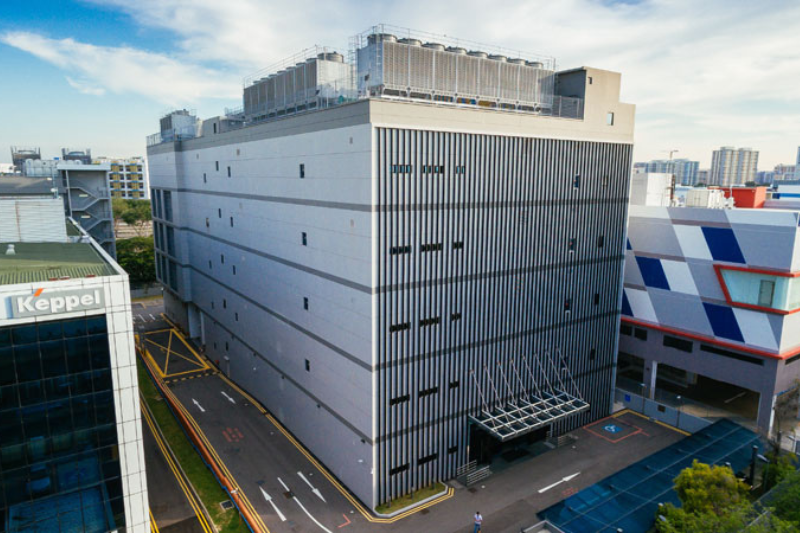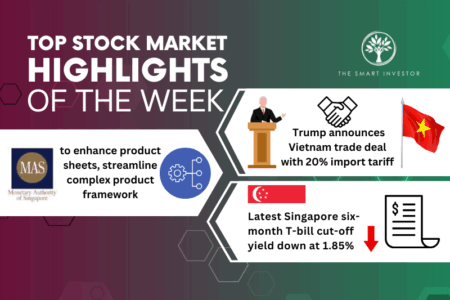It has been a torrid time for REITs as a flurry of worries descends on the sector.
Two major headwinds REITs have to face are rising interest rates and soaring inflation.
Income-driven investors will naturally be curious to know how REITs are coping with these challenges.
The ongoing earnings season could shed some light on how the REITs are faring amid this difficult environment.
Keppel DC REIT (SGX: AJBU) recently released its earnings report for the quarter ended 31 December 2022 (4Q2022).
The data centre REIT has been a favourite with investors due to its resilience and unbroken track record of distribution per unit (DPU) increases since its IPO.
Here are five highlights from the REIT’s latest earnings that investors should take note of.
1. Resilient financial performance
The REIT reported a robust set of financial results in the second half of 2022 (2H2022).
During the period, gross revenue grew by 4.3% year on year from S$135.9 million to S$141.8 million.
For fiscal 2022 (FY2022), gross revenue increased by 2.3% year on year to reach S$277.3 million, up from S$271.1 million in the previous year.
Moreover, net property income (NPI) rose by 4.0% year on year to reach S$129.3 million in 2H2022.
On the back of these results, the REIT declared a DPU of S$0.05165 for 2H2022, 4.8% higher than the same period last year.
That translates into an attractive DPU yield of 4.8%.
The increase in DPU was mainly driven by various acquisitions, asset enhancement initiatives (AEI) and the completion of Intellicentre 3 East Data Centre.
2. Portfolio updates
The acquisition of the London Data Centre was completed in January 2022.
This acquisition expands the REIT’s presence in London, one of the top global data centre hubs.
Its acquisitions of Guangdong Data Centres 2 and 3 also effectively diversified the REIT’s portfolio to Guangdong, one of China’s most established data centre markets.
This move follows its acquisition of Guangdong Data Centre 1, its first investment property in China, in December 2021.
As of 31 December 2022, Keppel DC REIT had approximately S$3.7 billion of assets under management, up from S$3.4 billion as at end 2021.
These acquisitions lifted the Keppel DC REIT’s total portfolio to 23 data centres across nine countries.
3. Secular growth trend
As a pure-play data centre REIT, the REIT’s future growth is dependent on the continued demand for quality data centres.
The world’s data needs continue to grow exponentially, while the growth in key data centre hubs continues to be limited by power and land availability.
Enterprise spending on cloud infrastructure services in the third quarter of 2022 (3Q2022) grew 24% year-on-year to US$57.5 billion.
At the same time, worldwide end-user spending on public cloud services is expected to surge 20.7% year on year to US$592 billion in 2023.
The higher spending on cloud services is due to the acceleration of IT modernisation and cloud usage initiatives by businesses.
28.5% of the REIT’s total property portfolio is in Europe.
The number of data centres in Europe needs to increase by nearly 2.5 times to meet the projected increase in demand.
The construction of additional data centres in the European region should open up more acquisition opportunities for the REIT.
4. Consistent operating metrics
Keppel DC REIT achieved a portfolio occupancy of 98.5%, up slightly from 98.3% as of end-2021.
It also lengthened its portfolio weighted average lease expiry (WALE) from 7.5 years to 8.4 years.
The REIT also has a well-spread-out lease expiry profile, with the bulk of its leases expiring in 2028 and beyond.
Furthermore, more than 50% of the REIT’s leases contain built-in income and rental escalations based on the consumer price index.
With these clauses, unitholders can expect higher distributions from the REIT’s existing portfolio of assets.
5. Buffering against higher interest rates and rising inflation
To curb rising inflation, the US Federal Reserve has hiked interest rates by 0.75 percentage points each over four consecutive sessions, totalling a three percentage point rise.
Higher interest rates directly translate into higher finance costs, which in turn will reduce DPU.
Management has announced that a 1% increase in interest rates would lead to 4Q2022’s DPU declining by 2.1%.
Therefore, the 3% increase in interest rates will result in 4Q2022’s DPU declining by 6.3%.
Against such a pessimistic backdrop, investors should look out for REITs that can weather the storm.
For instance, REITs with strong balance sheets and prudent capital management will be more resilient against tough macroeconomic headwinds.
For instance, Keppel DC REIT’s hedges 74% of its loans on fixed interest rates.
Meanwhile, the REIT’s aggregate leverage ratio improved further by 1.1 percentage points from the previous quarter to 36.4%.
On the negative side, the REIT’s average cost of debt further increased from 2.3% in the previous quarter to 2.7% in the fourth quarter of 2022 (4Q2022).
To reduce foreign currency risks, the REIT has adopted natural hedging by borrowing in currencies that match its corresponding investments.
Only 33.2% of the REIT’s total debt is denominated in Singapore Dollars (SGD), while 38.3% is denominated in Euros (EUR).
On inflation, above 90% of electricity costs are passed through to colocation clients while master lease clients contract electricity directly with their power suppliers.
If you’re looking to invest in 2023, our latest FREE report can guide you. It shows you how to find dividend stocks in SGX, and a nearly fool-proof way of building your portfolio. Many people love dividend investing, but few truly know how to profit from it consistently. Click the link here to download our new report and discover the secrets!
Follow us on Facebook and Telegram for the latest investing news and analyses!
Disclosure: Ryan Yap does not own any of the shares mentioned.





